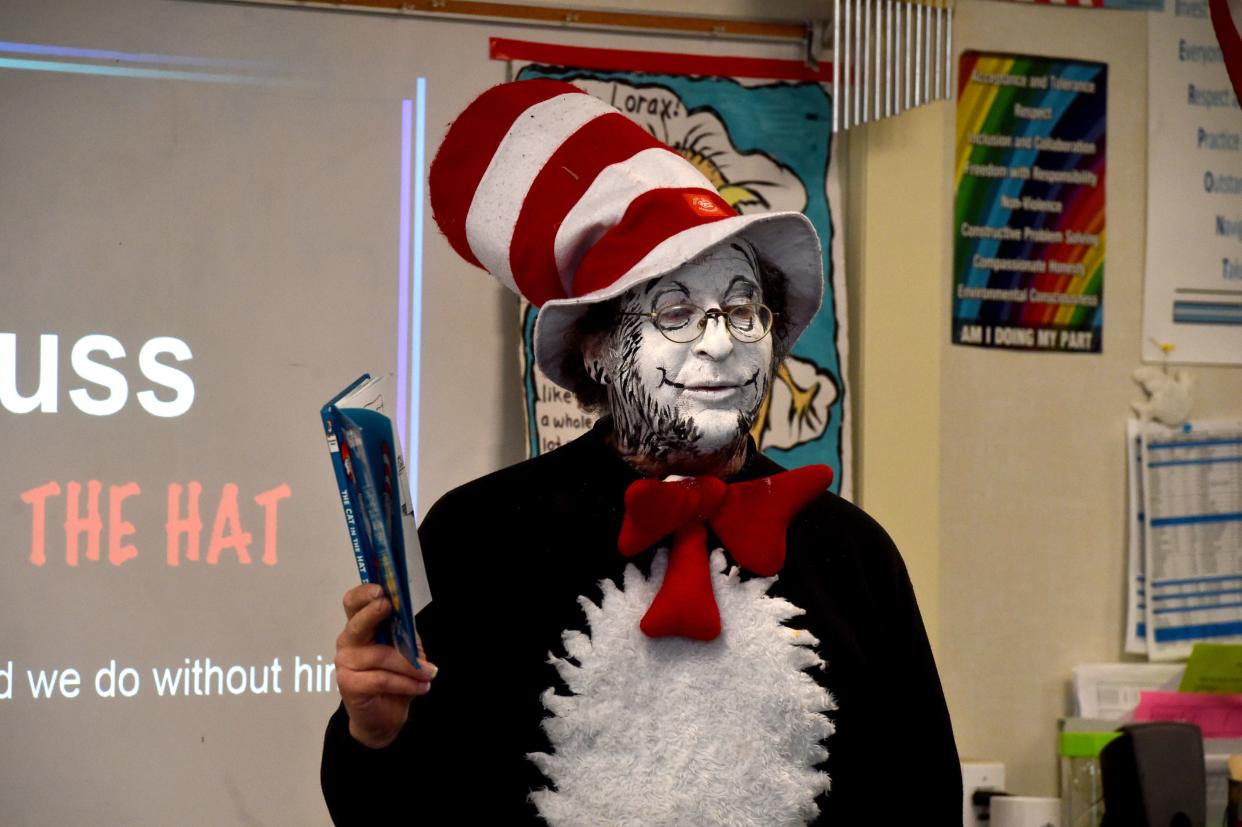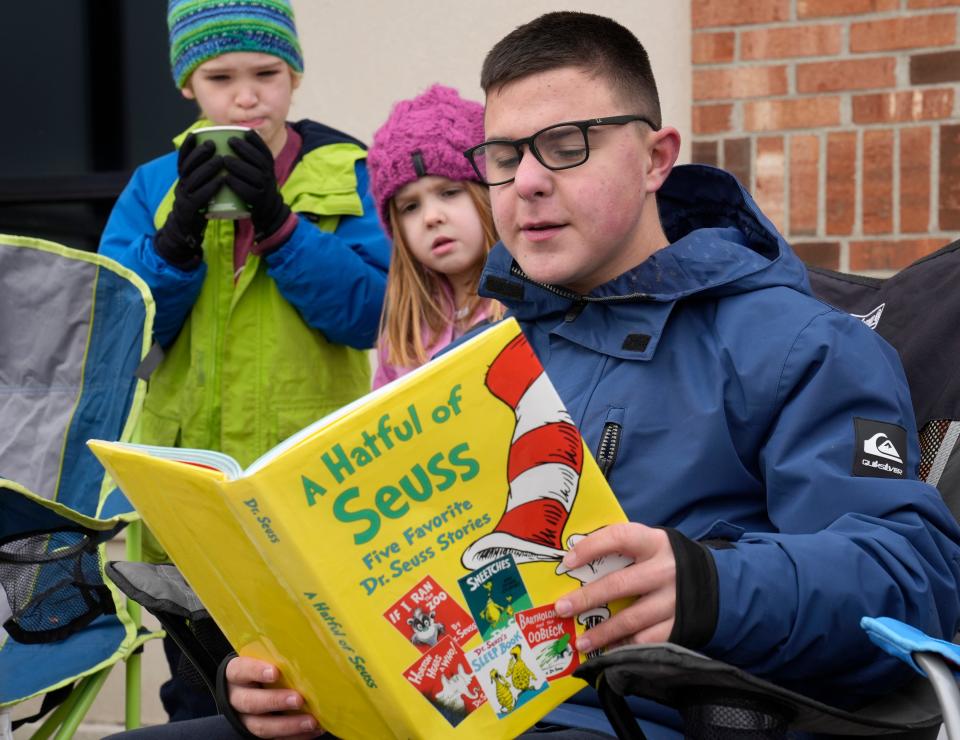Letters: Kids being taught to fear dangerous enemies like Dr. Seuss or Winnie the Pooh

- Oops!Something went wrong.Please try again later.
Are we the people who ban books?
I speak for many people who are devastated at the dangerous direction our precious country is heading.
More:Olentangy Schools: Official 'made a personal judgment' to halt Dr. Seuss reading on NPR
My very worried list includes such issues as the deepening polarization of our citizens, mistrust of our democratic institutions, denial of women's reproductive rights, attacks on our public schools, absence of effective gun control, increase of anti-Semitic, racist bigotry, criminalization of our doctors who are ordered to break their Hippocratic Oath and deny treatments and service to women and LGBTQ patients.
Opinion:Hilliard, state board showing how groups are spreading hate in Ohio school
This very limited list was shockingly added to by the Jan. 11 front-page headline "Reading stopped after kids ask questions."

At first, I thought this disgraceful story was another example of those countries that stifle and punish free thought and expression, but no.
It featured an outrageous incident with Ohio third graders listening to a Dr. Seuss book!
When a child had a question about the treatment of the characters in the story, the administrator present abruptly stopped the program.
More:Olentangy students, parents protest recent halting of Dr. Seuss reading on NPR podcast
Have we reached an all-time low? Are we shutting the doors of wonder, curiosity, questions? Do we accept the closing of our kids’ minds, or the intimidation of our teachers who are committed to opening the windows of learning to their students?
How do we encourage informed, concerned, enlightened citizens if they are taught to fear such dangerous enemies as Dr. Seuss or Winnie the Pooh? Are we the people who ban books?
I have been in education for decades and never have I felt more fear that we are witnessing the possible destruction of our democracy.
Letters: It's chilling Olentangy schools stopped Dr. Seuss reading after race question
I urge everyone who cares to speak out, speak up, write, call, sing, protest. We can’t protect and preserve our democracy with silence and indifference.
Mimi Brodsky Chenfeld, Columbus
We’re so afraid to discuss race

I was appalled to read the Jan. 11 front-page article "Reading stopped after kids ask questions." The Dr. Suess story was part of a group of six in a unit focused on economics.
Olentangy Schools Assistant Director of Communications Amanda Beeman expressed discomfort with the choice of that book, and when a student offered a comment comparing the story to racism “back then,” and how “white people disrespected black people,” she stopped the reading.
First of all I commend the teacher for creating a classroom climate where kids feel safe to bring up “sensitive” topics; secondly I commend that student’s parents for teaching them to know prejudice when they see it (and bless the kid’s heart for thinking it was all “back then”).
Part of what makes a piece of literature effective is that it can be interpreted in more than one way, because it has more than one theme.
According to his family, Dr. Seuss intended to encourage kids to judge others based on “the content of their character,” as Dr. Martin Luther King, Jr. said.
But the story can also be read as a critique of fashion—as soon as everyone gets the latest, coolest thing, it’s not cool anymore, so you gotta buy something else.
And it can certainly be read for a comment on economics.
(The Dr. Suess character) Sylvester (McMonkey McBean) the capitalist is making a boatload of money by exploiting the human weakness for thinking we can buy our way into some perceived better status. It’s pretty funny that the district allowed a discussion of economics while stipulating that politics were off limits. Economics is inherently political—ask any presidential candidate.

More:How to submit a letter to the editor for The Columbus Dispatch
So Beeman shuts down an innocent discussion about racism, but is willing to allow a talk involving a pretty subversive take on the dangers of capitalism?
One reason our country still suffers from racism is because we’re so afraid to discuss it openly and honestly. It’s sad to think fear was behind Beeman’s decision, but it most certainly was. To foster critical thinking skills in our students, we must allow free and open discussion of their ideas, even on NPR.
Cheryl Gordon, Retired English teacher, Logan
This article originally appeared on The Columbus Dispatch: Letters: Lessons learned from Olentangy Schools stopping NPR reading

